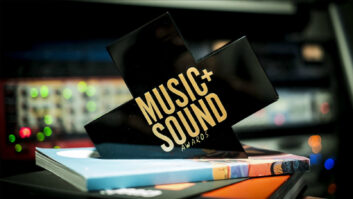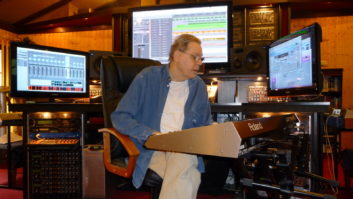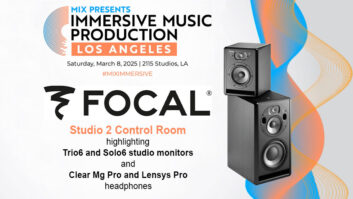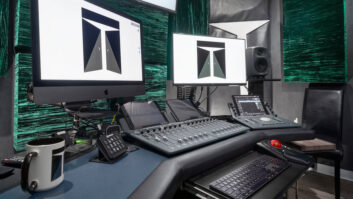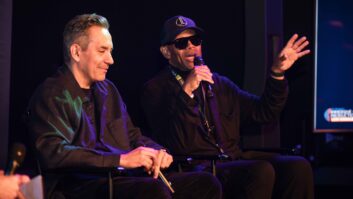
With remarkable prescience, Danielia Cotton’s new EP, A Different War, tackles some of the issues at the heart of the political protests currently roiling the United States. But while the release may be timely, the issues of race, gender and economic disparity are centuries old, and for Cotton, who is biracial, very much a part of her lived experience.
The new six-song EP is the most overtly political collection from Cotton, who was one of only seven Black kids in her high school class in Hopewell, NJ. Several decades later, living in New York City with a Jewish partner and a biracial 2-year-old daughter, she finds herself still confronting many of those age-old issues.
Her releases to date, described as “soulful blues rock” and “a modern-day Bettye LaVette meets Sheryl Crow,” have typically relied on a core group of rock musicians. This latest release, billed as Danielia Cotton and the Church Boys, was recorded at His House–Innsbruck Studios in Brooklyn, which is co-owned by songwriter, producer and engineer Roman Klun and Aaron Comess of Spin Doctors. Comess plays drums on the project, which also features Ben Butler on guitar, Andy Hess on bass and teenage wunderkind guitarist Emmanuel Rossillo. Dave O’Donnell mixed the release, which was mastered by Greg Calbi.
Cotton is currently working on a multiracial-themed Broadway-style piece with Brooklyn battle rap veteran Mickey Factz, who guests on the EP’s title track. “The project I’m doing with Mickey is my life,” says Cotton, who shared some insights into her music and her life just days before the July 4th weekend.
On co-producing the new release
I co-produced with my brother and manager Craig Shofed. My brother has been an avid fan and is a serious music lover. Whenever I wrote anything, I would ask him what he thought. He was always my go-to ear and I always go to him when I have a mix. Roman Klun was the engineer. Then, to have the ears of Dave O’Donnell at the end, and Greg Calbi, was a beautiful thing.
 On gravitating to rock music
On gravitating to rock music
I grew up a Black kid in a small, white town, so everybody played rock. I was mad that I didn’t look white, and rock sounded like how I felt. People said, “You have such adult tastes for a little person.” But I didn’t like being outside getting dirty, because I was that girl. I would put the headphones on and listen to cassettes. My mom was into jazz, but had other things in the living room, like Johnny Winter, Bonnie Raitt, Chaka Khan, Nancy Wilson. Upstairs, my brother’s playing Todd Rundgren, Foreigner, Led Zeppelin and Yes.
On racism and healing
I was crowned “Lady” at homecoming in my freshman year. When it was time to dance, the class “Lord” said, “I won’t dance with that n*****.” I was devastated. I thought I’d won, that I was “in,” but it didn’t matter.
I recently wrote an article about high school for SWAAY.com and people from my hometown replied, saying, “You won because everybody liked you.” Then the boy wrote to my manager and publicist and said, “I don’t recall the incident, but I’m sure her recollection is correct. I used that word a lot in my youth…. Please tell her I’m sorry, and at the next reunion, it would be my honor if she would dance with me.” I cried! So there’s a lot of healing going on right now.
On bridging the racial divide
I only write about what I know. And I am a Black woman. It’s almost impossible to fathom where I come from and what I went through.
“Your color opens doors and mine is fighting a different war”—that’s the line [from “A Different War]. This is the way I live; this is the way you live. But it doesn’t have to be this way if we see each other’s point of view. If you have to deal with it, you’d rather have it pull you up in the midst of the reality of it all, so there’s an uplifting sense to the chorus.
I think that uplifting element is necessary. We just want to go outside and live normally. We want the music to take us someplace so we don’t have to think about wearing a mask every day. Music is a place we go to escape everything. We have to write things that give people a place to go. Right now, they can’t go anywhere—they’re trapped in their houses—so you give them a place to go that doesn’t remind them about everything that’s going on.
We’re moving forward to release new tracks before the end of the summer, then we’ll re-release A Different War on vinyl. If I add more songs, they’ll not be about what’s going on so much. They’ll just be good songs that you can get lost in.
On telling the truth
There’s a real fear in people now. At a certain point, as artists, we have to ask ourselves who we are. What kind of people are we? If the government and the media tell you to stop, and you do, then where’s your freedom of speech and freedom to be who you are?
My manager says, “Don’t get political.” But when do I tell the truth? Because back in the day, artists told the truth—who they stood for, which side of the line they stood on. It’s important that we don’t get afraid to say how we feel or what we believe in just because some fans might drop us. Is our success more important than our beliefs? Can we not say how we feel anymore?
The beautiful thing when it comes to making music is you have to go where it wants you to go. Let it be what it wants to be. You have to be willing to go outside of your comfort zone.
Danielia Cotton • www.danieliacotton.com

